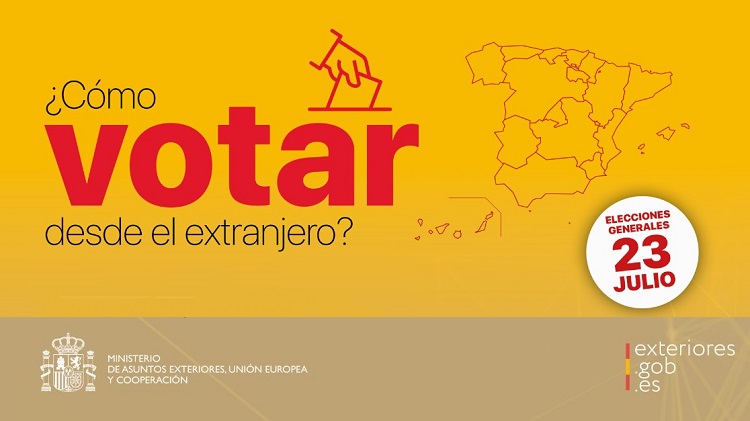Eduardo González
More than 2.3 million Spanish citizens living abroad will be able to vote next July 23 in the first general elections without “rogatory vote” since 2011.
According to data from the National Statistics Institute (INE), published last week, a total of 37,466,432 voters will be able to vote in the elections to the Spanish Parliament. Of these, 35,141,122 reside in Spain and 2,325,310 abroad.
Besides, the INE reminded, voters residing abroad will be able to vote without the need of a previous request. The Electoral Census Office (OCE) will send to all voters the necessary documentation for the vote in two independent shipments, documentation that may also be obtained directly at the voting centers established by the Ministry of Foreign Affairs from July 15 to 20, which are the days enabled for the deposit of the vote in the ballot box from abroad.
Likewise, the application period for absentee voting for voters temporarily abroad (ERTA) will be until June 29, while voters residing abroad (CERA) who are temporarily in Spain during the electoral process may apply (as well as those residing in Spain) for absentee voting from May 30 to July 13 and send the ballot no later than July 20. The elections of July 23 will be the first to be held in Spain during the summer vacations.
The postal vote of voters residing abroad (CERA) may be sent to the Consulate or voting center until July 18. In addition, the deposit of the vote in the ballot box at the Consulate or authorized voting center of the voters residing abroad may be made between July 15 and 20, both included.
Rogatory vote
Last October 2022, the law reforming the Organic Law of the General Electoral Regime (LOREG) to facilitate the vote of Spaniards residing abroad officially came into force, which put an end to a system, that of the “, whose application since January 2011 had resulted in a sharp decline in the participation of those registered in the Census of Absent Residents (CERA). The first elections without a rogatory vote were the recent autonomic and municipal elections of May 28th.
The rogatory vote system obliged Spaniards residing abroad to previously request or beg to vote in order to participate in the general, regional or European Parliament elections, complying with a series of very short deadlines both for the request of the electoral documentation and for the remission of the vote by mail or its deposit in the ballot box.
Such circumstances, together with the time required to collect and print the documentation to be sent, and the dependence on foreign postal services, made it difficult to comply with the deadlines established in the electoral regulations, and with it the exercise of this fundamental right for a very large number of people, largely because they did not receive the electoral documentation on time or because there were incidents in the subsequent sending of their votes by postal mail to the Consular Offices.
For that reason, in the 2011, 2015, 2016 and April 2019 general elections, less than ten percent of voters requested or begged to vote as a result of the complexity of the procedure (with the exception of the November 2019 elections, in which voters who had requested the documentation in the April elections -8.69%- did not need to reiterate their request, which, together with the new requests, allowed reaching a percentage of 10.61 percent).
Apart from that, turnout levels were even lower, ranging between 4.73 and 6.8 percent in the 2011, 2015, 2016 and 2019 general elections, percentages that contrast sharply with the average turnout data prior to the approval of the 2011 reform, which ranged from 22.99 percent in 2000 to 31.88 percent in 2008.
The modification of the LOREG was approved by the Congress and the Senate last June 9 and September 21 based on a bill presented, in February 2021, by the Socialist Group and the Confederal Parliamentary Group of Unidas Podemos-En Comú Podem-Galicia en Común. The rogatory vote was introduced in 2011 by the Government of the Socialist José Luis Rodríguez Zapatero with the support of PSOE, PP, CiU and PNV.







